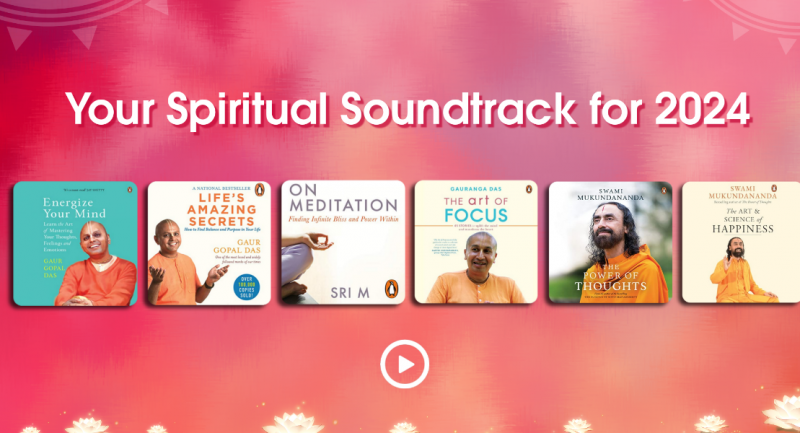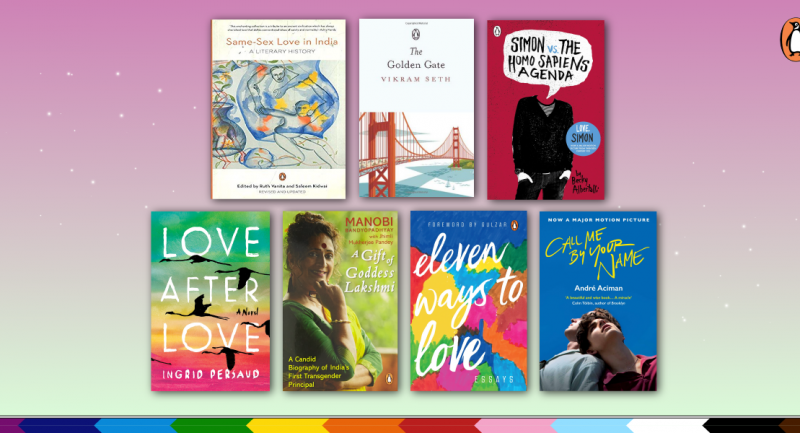
There’s no better time than right now to sit down and curl up with a few good books and a steaming cup of tea by your side. Why not take a look at these versatile new reads coming up this July?
Roots to Radiance
Do you wish you looked perfect, but don’t have the time or money for expensive treatments? Look no further than Roots to Radiance-your self-care bible to good skin, hair, teeth, nails, etc., and, most importantly, good health.
In Roots to Radiance, you will find 500+ tips and tricks that will help you stay in your ‘A game’.
By using its easy-to-make solutions drawn from traditional Indian wisdom, you can lessen and even replace chemicals with wholesome, natural ingredients that will enrich and enhance your daily beauty routine.
From refreshing life lessons to inevitable struggles and motivational inspiration, this book will help you sail through every beauty or life concern you’ve ever had.
Kargil

Kargil takes you into the treacherous mountains where some of Indian Army’s bloodiest battles were fought. Interviewing war survivors and martyrs’ families, Rachna Bisht Rawat tells stories of extraordinary human courage, of not just men in uniform but also those who loved them the most. With its gritty stories of incomparable bravery, Kargil is a tribute to the 527 young braves who gave up their lives for us-and the many who were ready to do it too.
The Barefoot Surgeon

Sanduk Ruit was born into the lowest rungs of society in a tiny, remote Himalayan village in Nepal. After long and difficult treks to attend boarding school in Darjeeling and, later, the best of Indian medical colleges, he met the remarkable visionary and Australian ophthalmologist, Fred Hollows, whose invaluable mentorship would enable him to take on his lifelong mission to restore vision to the poorest of blind people across Nepal and the rest of Asia.
Despite relentless backlash from his shaken contemporaries in the global medical industry, Dr Ruit took his unmatched prowess in stitch-free cataract surgery, along with world-class medical care and equipment, to those whose lives were plunged into darkness; who were ostracized and abandoned for being blind with no access to proper treatment.
Dr Ruit is known as the ‘God of Sight’ for restoring the light to millions of people who have been prey to curable blindness and vicious poverty; this is his extraordinary story.
Bad Man

Growing up on the fringes of our capital city, Gulshan Grover moved to Mumbai to pursue a career in acting in the 1970s. At a time when most wannabe actors held out for the lead, he made a conscious choice to opt for villainous roles. He went on to portray many memorable characters, with a career-defining role in the 1989 blockbuster, Ram Lakhan, that established him firmly as the ‘Bad Man’ of Bollywood.
Many a mainstream potboiler of the era rode to success on his trademark one-liners and grotesque get-ups that have become part of Bollywood folklore. He subsequently moved on to the international arena, among the first actors from Mumbai to do so, in the process becoming one of India’s more recognizable faces in international cinema.
In this autobiography, Grover tells his story-the films, the journey, the psychological and personal toll of sustaining the ‘bad man’ image, the competition among Bollywood’s villains, the move to playing more rounded characters, and the challenge of doing international films.
The Rise of Goliath

What can best illustrate India’s journey in the last seven decades? Disruptions.
Almost every decade of India’s history since Independence has been marked by major disruptions.
India became independent through an act of disruption-Partition-that killed millions in communal violence and turned many more into refugees. The turn towards a model of state-led economic development delivered as big a shock to the economy as did the food crisis or the spike in crude oil price. If the Emergency in 1975 shook the foundations of India’s democracy, the unprecedented balance-of-payments crisis of 1990 turned India towards a path of economic reforms. Just as the reservation of jobs for backward castes changed the idiom of India’s politics, the movement for building a temple for Ram drove India closer to becoming a majoritarian state. No less disruptive have been the telecom revolution, the banking crisis, demonetization and the launch of the goods and services tax.
How did these disruptions impact India? How did they influence the rise of this Goliath?
This is the story of twelve disruptions that changed India. The book also provides a peek into the kind of disruptions India could face in the coming years.
The Making of Star India

When Rupert Murdoch, executive chairman, News Corporation, blew up more than $870 million buying Star TV from Richard Li in the early 1990s, analysts were dismayed. Why on earth had Murdoch invested in a pan-Asian broadcaster that was neither fish nor fowl?
More than twenty-five years later, with revenues of over $2 billion, Star India is one of the country’s three largest media firms. Murdoch’s instinct had done what a hundred investor summits could not: showcased the potential of the Indian media market to the world. Vanita Kohli-Khandekar tells the thrilling story of Indian television through its most notable protagonist: Star TV. The narrative is peppered with delicious anecdotes and a fascinating cast of characters that includes Rathikant Basu, Peter Mukerjea, Uday Shankar, Sameer Nair and the Murdochs, who loom large over every scene.
Unstoppable

Kuldip Singh Dhingra, the patriarch of the Dhingra family and the man credited with building Berger Paints, has remained a mystery. He is low-profile, eschews media and continues to operate from a small office in Delhi. In this candid and captivating biography Kuldip reveals his story for the first time.
Kuldip lost his father to an accident early in his life. He and his brothers, Sohan and Gurbachan, started as shopkeepers in Amritsar. From an annual turnover of Rs. 10 lakh in 1970, the Dhingras have built a business with an annual turnover of over Rs. 7,500 crore today. They are among the top thirty richest families in India with a net worth of over $ 4.5 billion.
This never-before-told story of Kuldip moves from Amritsar to Europe to Delhi where he became the largest exporter to the Soviet Union in the 1980s. In 1990 the Dhingras bought Berger.
From dealing with KGB to negotiating with the flamboyant Vijay Mallya; from being pushed to sell arms to challenging big businesses-Unstoppable narrates what a man can achieve if he pursues his dreams relentlessly.
A Promised Land

In the wake of the Partition, a new country is born. As millions of refugees pour into Pakistan, swept up in a welter of chaos and deprivation, Sajidah and her father find their way to the Walton refugee camp, uncertain of their future in what is to become their new home.
Sajidah longs to be reunited with her beloved Salahuddin, but her journey out of the camp takes an altogether unforeseen route. Drawn into the lives of another family-refugees like herself-she is wary of its men, particularly Nazim, the eldest son whose gaze lingers over her. But it is the women of the household whose lives and choices will transform her the most: the passionately beseeching Saleema, her domineering mother Khala Bi, the kind but forlorn Amma Bi, and the feisty young housemaid Taji.
With subtlety and insight, Khadija Mastur conjures a dynamic portrait of spirited women whose lives are wrought by tragedy and trial even as they cling defiantly to the promise of a better future.
Plastic Emotions
Plastic Emotions is inspired by the life of Minnette de Silva-a forgotten feminist icon and one of the most important figures of twentieth-century architecture. In a gripping and lyrical story, Shiromi Pinto paints a complex picture of de Silva, charting her affair with the infamous Swiss modernist Le Corbusier and her efforts to build an independent Sri Lanka that slowly heads towards political and social turmoil.
Moving between London, Chandigarh, Colombo, Paris and Kandy, Plastic Emotions explores the life of a young, trailblazing South Asian woman at a time of great turbulence across the globe.
For the Love of God

Between the third centuries BC and AD were written thousands of verses in Tamil that have collectively come to be known as Sangam literature. The expressions of love between a man and a woman in these love poems gave way to passionate expressions of devotional love, where the heroine became the devotee and the hero became God. Through the centuries of patriarchy, women negotiated varied levels of existence and largely went unnoticed until they found a path for self-expression through bhakti or devotion. While the dominant form of worship was to prostrate before God, women found innovative ways of personal expression, often seeing the lord as a lover, friend, husband, or even son. The individual outpourings and the unfettered voices of these women refused to be drowned in the din of patriarchy gathering momentum until this became a pan India movement.
In For the Love of God, Sandhya Mulchandani delves deep into historical accounts of these women who fell in love with God.
Caste Matters
In this explosive book, Suraj Yengde, a first-generation Dalit scholar educated across continents, challenges deep-seated beliefs about caste and unpacks its many layers. He describes his gut-wrenching experiences of growing up in a Dalit basti, the multiple humiliations suffered by Dalits on a daily basis, and their incredible resilience enabled by love and humour. As he brings to light the immovable glass ceiling that exists for Dalits even in politics, bureaucracy and judiciary, Yengde provides an unflinchingly honest account of divisions within the Dalit community itself-from their internal caste divisions to the conduct of elite Dalits and their tokenized forms of modern-day untouchability-all operating under the inescapable influences of Brahminical doctrines.
This path-breaking book reveals how caste crushes human creativity and is disturbingly similar to other forms of oppression, such as race, class and gender. At once a reflection on inequality and a call to arms, Caste Matters argues that until Dalits lay claim to power and Brahmins join hands against Brahminism to effect real transformation, caste will continue to matter.
On Meditation

In today’s challenging and busy world, don’t you wish you knew how to quieten your mind and focus on yourself? In On Meditation, renowned spiritual leader, Sri M, answers all your questions on the practice and benefits of meditation. With his knowledge of all the various schools of practice and the ancient texts, he breaks down the complicated practice into a simple and easy method that any working man or woman, young or old, can practise in their everyday lives.
Manto and Chughtai: The Essential Stories

Ismat Chughtai and Sadat Hasan Manto were Urdu’s most courageous and controversial writers in the twentieth century. Featuring themes such as communal violence, the Partition, sex, relationships, and more, this collection features some of their most famous short stories.
The Body Myth
Mira is a teacher living in the heart of Suryam, the only place in the world the fickle Rasagura fruit grows. Mira lives alone, and with only the French existentialists as companions, until the day she witnesses a beautiful woman having a seizure in the park. Mira runs to help her but is cautious, for she could have sworn the woman looked around to see if anyone was watching right before the seizure began.
Mira is quickly drawn into the lives of this mysterious woman Sara, who suffers a myriad of unexplained illnesses, and her kind, intensely supportive husband Rahil, striking up intimate, volatile and fragile friendships with each of them that quickly become something more.













